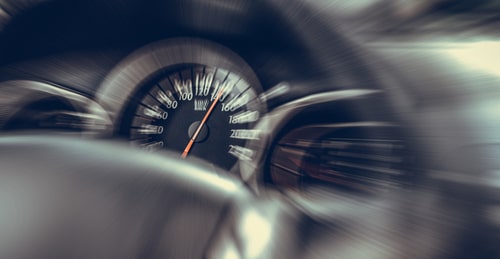When a driver’s attempt to avoid hitting a deer or other wild animals in the roadway causes an accident, they could be held liable for any damages caused by the collision. This sounds really harsh, especially if you are an animal lover, but Virginia law says that it is unreasonable for a driver to endanger the lives of humans instead of running over an animal.
Who is liable for damages when a wild animal causes a car accident?
Regardless of whether the animal in question is domestic or wild, if a driver swerves to miss it and, in doing so, causes damages, they could be held responsible for any injuries sustained by the occupants of another vehicle and even their own passengers.
Please note that, in Virginia, drivers are required to make every effort to avoid a beast of burden. This includes any animals that are pulling a vehicle, carrying people, or being led by someone holding their reins. Under these circumstances, both the animals and the person with them have the right of way.
If you were injured in a Virginia car accident that involved a deer or other wildlife, our legal team can evaluate and file your claim for financial compensation. To schedule your free case review with one of our Virginia car accident attorneys, call our offices in Virginia Beach at (833) 997-1774 or fill out the form on our website.
When Am I Most Likely to Hit a Wild Animal?
In Virginia, as well as other areas of the United States, wild animal crossings are a serious issue. More than two million motor vehicle accidents involving wildlife take place every single year. The animals most likely to cause these accidents are deer.
In recent years, Virginia’s deer population has increased dramatically, causing an estimated 6,500 car accidents annually in the Commonwealth. These accidents tend to take place at dawn and dusk, and over 50% occur during the rut season (deer mating season), which is between October and December.
A recent study published by State Farm Insurance shows that drivers in Virginia have a 1 in 74 chance of being involved in a wildlife accident.
Will My Auto Insurance Cover Damages Caused by a Wild Animal?
If hitting a wild animal, such as a bear or a deer, causes damage to your vehicle, your auto insurance will most likely cover you provided that you carry comprehensive coverage. Your claim is equally likely to be denied, however, if you were in violation of the law when the accident occurred. This includes infractions such as drunk driving, speeding, and running stop signs. Virginia still follows the laws of contributory negligence which prohibit the recovery of any damages if you were even party to blame for the accident.
How Can I Avoid a Crash With a Wild Animal?
Some steps that Virginia drivers can take to avoid colliding with deer and other animals as suggested by the Virginia Department of Game and Inland Fisheries include:
- Be extra careful when driving in the autumn, and at dusk and dawn as this is when they tend to be the most active
- If you see a deer in the roadway ahead, slow down and proceed slowly until you pass the area where you saw the deer. They often travel together and where there is one, there’s another.
- Be mindful of any VDOT deer crossing signs. Keep in mind that, although deer do like to cross in the same general area, the absence of a deer crossing sign does not mean the absence of deer.
- If a collision with a deer is unavoidable, you should speed up. Never slam on your brakes as this makes the front of your car go down and could potentially launch the deer through your windscreen.
Speak With a Qualified Virginia Personal Injury Attorney Today
Personal injury cases can become extremely challenging when a wild animal is involved. To ensure that you receive the guidance and recovery you are entitled to, you should always work with a reputable personal injury firm.
Shapiro, Washburn & Sharp is a personal injury law firm located in the Virginia Beach area and backed by more than forty years of skill, knowledge, and experience. To schedule your free case evaluation, give us a call at (833) 997-1774.
